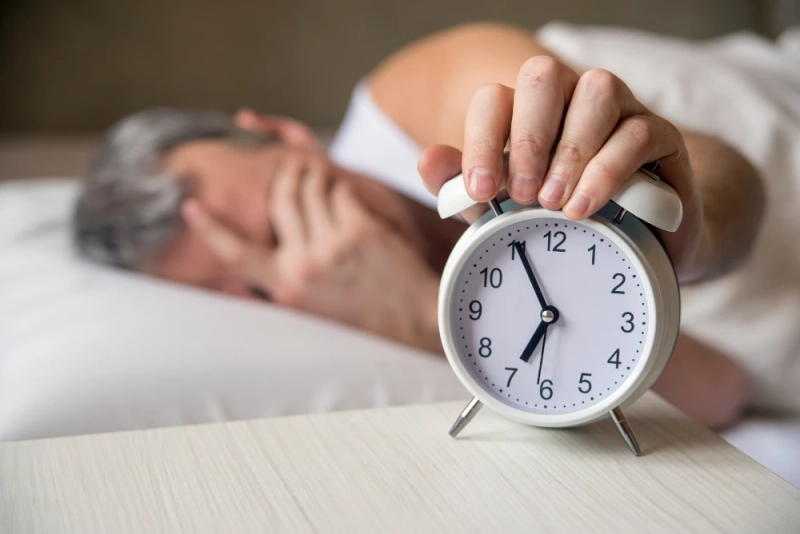Sleep deprivation is a common problem in modern society. With the rising demands of work and social life, increased usage of stimulants like caffeine or alcohol, high-stress levels, varied lifestyle choices, and a tendency to prioritize daily activities over a good night’s sleep, poor sleep hygiene amongst individuals is prevailing. This can have severe consequences on both mental and physical health. From irritability to impaired cognitive function, there are several ways in which sleep deprivation can cause great harm to your body.
Impaired Cognitive Function
An insufficient amount of sleep at night can leave you feeling drowsy and forgetful. These short-term memory losses can have long-term effects on your cognition, a process involved in acquiring knowledge and comprehension. Thinking, language, knowing, perception, remembering, and problem-solving are all mental processes of cognition. Simply put, lack of sleep can affect your ability to learn and retain new information. Additionally, a sleep-deprived person can have slower reaction times along with questionable accuracy in cognitive functions.
Emotional Instability
Sleep deprivation can also have a significant impact on your mood and emotional stability. Lack of sleep can make you more irritable, moody, and emotional. It can also aid in increasing your anxiety and depression levels. Attaining a sufficient amount of sleep daily is crucial for regulating emotions. Without adequate sleeping hours, which range from 7 to 9 hours, you may find yourself struggling to cope with everyday stresses and challenges that you may encounter.
Resultant Weight Gain
Sleep deprivation can also increase the probability of weight gain. Lack of sleep can disrupt the hormones that regulate hunger leading to an increased appetite. If left uncontrolled, this could translate to overeating and obesity. This is because, as a sleep-deprived individual, you will be more likely to consume high-calorie, high-fat foods.
Risk of Diabetes
Sleep plays a key role in metabolizing glucose. Your body’s inability to properly metabolize glucose can lead to an increased risk of type 2 diabetes. Insufficient sleep can reduce insulin (a blood sugar-lowering hormone) sensitivity, making it harder for your body to regulate blood sugar levels.
Weakened Immune System
Sleep plays a critical role in supporting a healthy immune system. Whilst sleeping, your immune system produces infection and inflammation-fighting matter like cytokines and antibodies. So when napping, these two elements help mount a defense for your body against foreign invaders like viruses and bacteria.
So in essence, insufficient sleep is likely to prevent your body from reinforcing your immune system. So your body may be incapable of fighting off invaders and also take longer to recover from an ailment.
Increased Risk of Accidents
Lack of sleep can impair your reaction time, decision-making skills, and ability to focus, making you more prone to accidents and injuries. Operating heavy machinery or making important decisions is not advised in such situations. Sleep-deprived individuals are more likely to be involved in vehicular or workplace accidents, which may result in injury or even death.
Prevention is Key
The most basic way to prevent sleep deprivation is by ensuring you get an adequate amount of sleep. Adults require 7 to 9 hours of sleep each night.
This simple step may prove to be arduous, especially if you have been sleep-deprived for several weeks or longer. Visit a doctor or sleep specialist if your condition continues to persist. If needed, the healthcare provider can examine, diagnose and treat a possible sleep disorder.
There are several more ways to get back to a healthy sleep schedule and proper sleep hygiene, through certain lifestyle changes.
Limiting daytime naps, avoiding stimulants like coffee, creating and abiding by a structured sleep schedule, avoiding heavy meals before bedtime, and steering clear from using electronic devices when getting into bed are some of the changes that need to be implemented. Furthermore, regularly exercising, and spending a few minutes carrying out relaxing activities before heading to bed like meditating, reading, or taking a shower considerably helps as well. Using sleep monitoring apps to track your sleep and using the data collected to improve sleep schedules is another great option.
In conclusion, sleep deprivation is a serious issue that can have a significant impact on your mental and physical well-being. It is important to prioritize getting enough sleep each night to support and improve your overall well-being.



